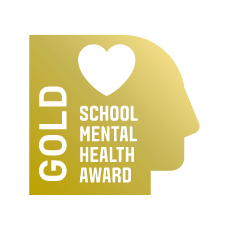SEND
What is SEND?
A child may have special educational needs or disabilities (SEND) if he or she has a problem which makes it more difficult for them to learn than other children of the same age. This may result in additional support being provided in school over and above that usually provided from the schools resources for children of the same age.
The law says that a child has special educational needs if he or she has a learning difficulty and needs special help.
A child has learning difficulties if he or she finds it harder to learn than most children of the same age, or if he or she has a disability which could make it difficult to access education.
Some examples learning difficulties could be:
- difficulties reading, writing, mathematics, speech
- emotional or behavioural problems
- a medical or health problem
- physical disability
- problems with sight or hearing
You may notice your child's problems yourself, or a doctor, health visitor or clinic may notice them before your child starts school. Alternatively your child's school may notice them.
If a child has a difficulty or disability which makes learning harder for them than for other children their age, then they are usually identified as having special educational needs or SEN.
SEN covers a broad spectrum of difficulty or disability - children may have wide-ranging or specific problems.
What can I do if I think my child needs help?
If your child is of pre-school age, then visit your GP or Health Visitor and ask for their opinion, in the first instance.
You can also contact the St Helens Information, Advice and Support Service (IASS); for advice about Special Educational Needs.
Who should I speak to?
If your child attends a pre-school setting, then speak to their teacher or their key worker.
If your child is already in school (including nursery), then talk to their teacher in the first instance.
You should also ask to speak to the school's Special Needs Co-ordinator (SENCO), or person responsible for SEN.
A full list of the school's Special Needs Co-ordinators (SENCO) can be found in the Related Documents section of this page. School contact details can be found on the Schools in St.Helens section of the website.
What will they need to know?
So that the school can help decide which is the best path to take to help your child, they will need and want to know;
- why you think your child has SEN
- whether your child learns at the same rate as other children their age
- what the school can do to help
- what you can do to help
What can I expect?
St Helen's Quality First Teaching offer to all pupils
The Special educational needs and disability code of practice: 0 to 25 years (DfE, 2014) says that a pupil has Special Educational Need where their learning difficulty calls for special educational provision, that is provision that is different from or additional to that normally available to pupils of the same age. Making higher quality teaching normally available to the whole class is likely to mean that fewer pupils will require such support.
All children and young people have the right to a good education and all schools are encouraged to ensure that a ‘quality first’ teaching approach is adopted in the classroom which is well planned, engaging, active and differentiated so that all pupils progress in every lesson.
If required, additional classroom support will be provided by schools for students with additional needs to ensure that they can access the curriculum and make expected progress. Parents and carers will be fully informed by schools of any extra support which is provided.
If you think your child may have a special educational need that has not been identified by their school or nursery, you should talk to your child’s teacher first, or ask to see the Special Educational Needs Co-ordinator (SENCO) or Headteacher.
The SENCO is the person in the school who has a particular responsibility for co-ordinating help for children with special educational needs or Headteacher. Working together with your child’s teachers will often help to sort out worries and problems.
St Helen's SEN Support offer to pupils:
In addition to 'Quality First Teaching', some children will need additional support due to their special educational needs or disabilities, (SEND).
This kind of help is called “special educational provision”. From September 2014 children and young people will receive support under a single school based category called “SEN support in schools”.
When a special educational need has been identified, the school or nursery should start a cycle of actions. This cycle is called the graduated approach and involves the teacher, the SENCO, teaching assistants, and sometimes other professionals. You, as parents/carers are involved and so is the child or young person.
More detailed information can be found in our Graduated Approach booklet in Related Documents
What happens next?
The SENCO or person responsible for SEN in the setting will discuss your child’s SEN with you and how best to meet their needs. This could include extra support, a different way of teaching or extra help from a specialist e.g. Speech Therapist.
The School could then ask the Council to provide top up funding if your child needs more than usual school resources; or the the school could submit a request for statutory assessment. The council will then engage with your child's school/setting to gain more information about your child.
The Process
The request will then enter the statutory process for determining how best to support your child's needs.
In the first instance, your child's school will work to meet their additional needs and in some cases working with other professionals to do so.
Education Health & Care Plans (EHCP)
Occasionally, the outcome from the panel be that a statutory assessment should be made, the the Council will draft an EHCP and will send the proposed plan to parent / educational setting / professionals.
- The school must consider the proposed plan and must respond to the Council within 15 days.
- Parents/carers/young person then have 15 days to comment / request an educational setting.
- SEN casework manager will contact parents / carers after 7 days.
- The parent/carer will then meet with Council and Keyworker to discuss the EHCP if necessary.
Still Not Sure?
Contact:
Additional Needs Team Atlas House Corporation Street St. Helens WA9 1LD
01744 671104/01744 671106
or alternatively:
St Helens Information Advice Service IASS)* Telephone: 01744 822160 Email: SheilaHenshall@Sthelens.gov.uk
Lyndsey Boggan St Helens Autism Spectrum Pathway Newton Childrens Centre Telephone: 01744 674179






